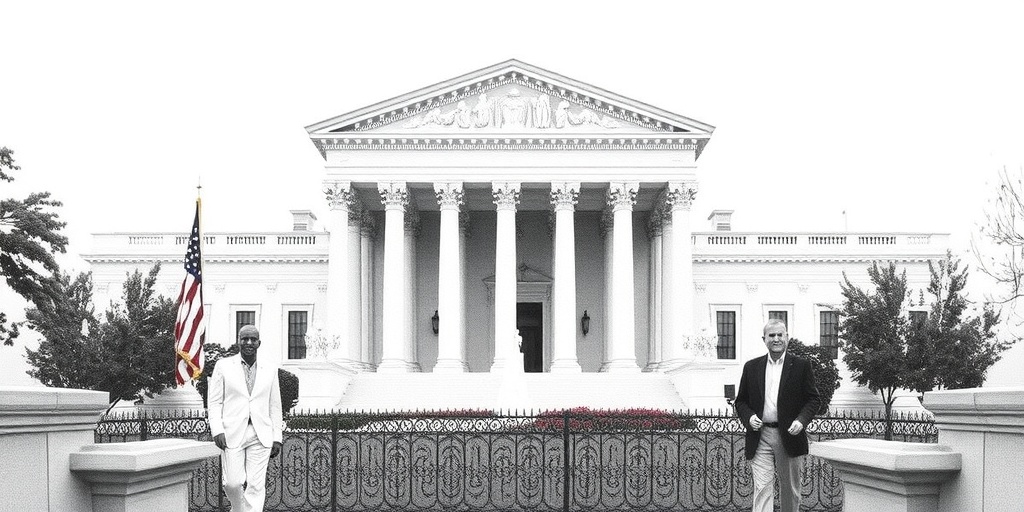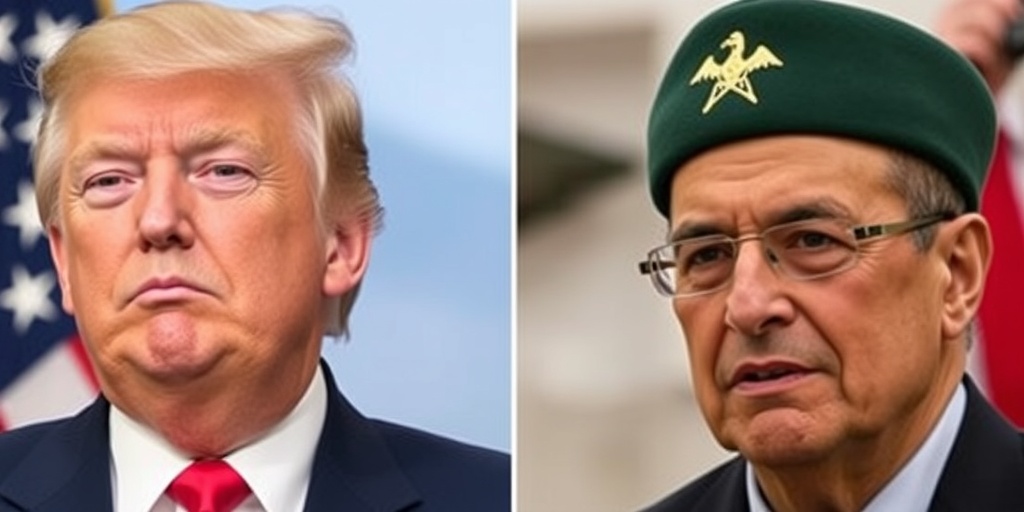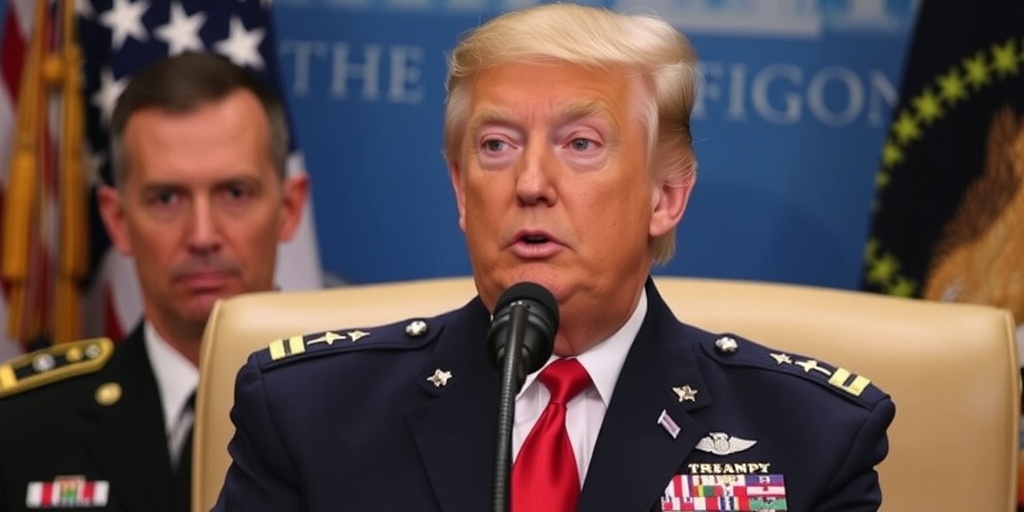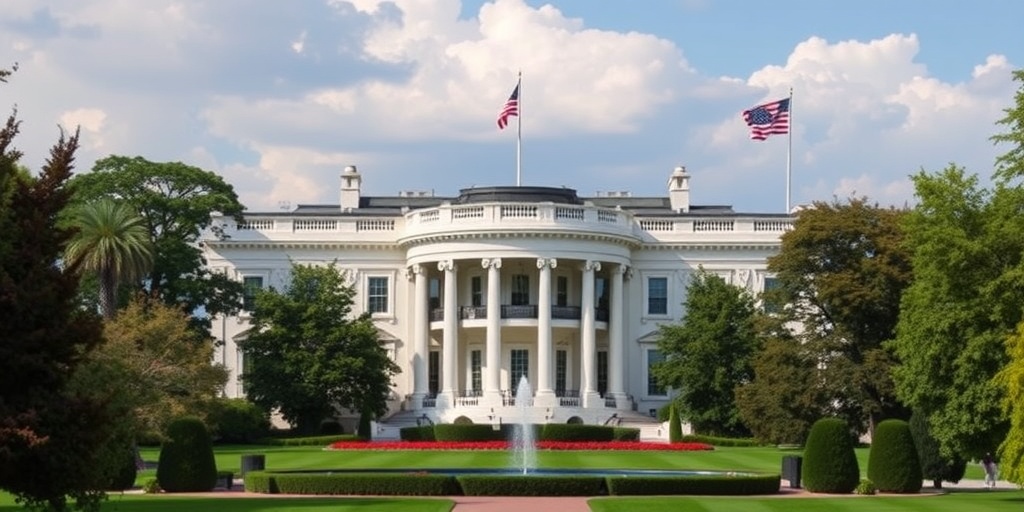Now Reading: Trump: A Reckless Global Disrupter
-
01
Trump: A Reckless Global Disrupter
Trump: A Reckless Global Disrupter
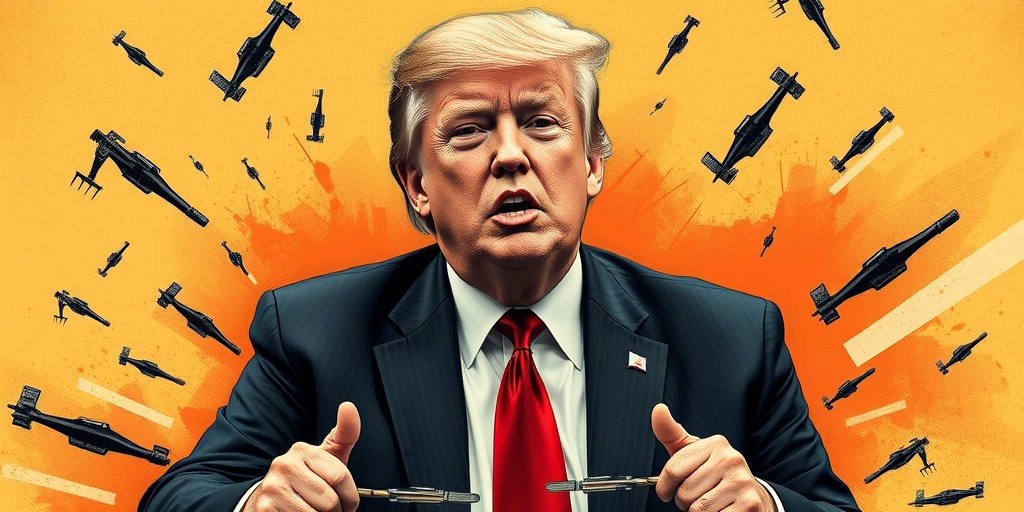
Title: The Recklessness of the Trump Administration: A Deep Dive into Economic Turmoil
In recent weeks, the Trump administration has exhibited a defining approach characterized by impulsive decisions and a lack of foresight, leading to significant disruptions within the global economy. The consequences of this recklessness are becoming increasingly apparent, as the administration appears to have hastily embarked on aggressive trade policies without a clear strategy for managing the fallout.
A critical moment came with President Trump’s announcement of “reciprocal” tariffs, a move anticipated to provoke a sharp decline in market values and retaliatory measures from other nations. Senior officials, when questioned, admitted that they allocated only a brief period to contemplate the profound economic impacts that would follow. The absence of a coherent plan for navigating the complexities of the global economy post-tariff has raised alarms, revealing a significant gap in the administration’s preparedness for such drastic measures.
The escalation of tensions with China serves as a clear example of this ad-hoc decision-making. With China being the second-largest economy globally and a formidable competitor, the lack of substantial dialogue between President Trump and Chinese President Xi Jinping prior to the implementation of these tariffs is concerning. This negligence has contributed to a rapid descent into trade war territory, with potentially damaging implications for both economies.
Last Wednesday, President Trump’s calculation led to an unprecedented tariff rate of 34 percent on all Chinese goods, impacting a wide array of products ranging from car parts to electronics. In a predictable reciprocation, President Xi matched this tariff, prompting Trump to issue an ultimatum requiring its reversal within 24 hours. The retaliation has set the stage for a steep increase in tariffs, projected to soar to 104 percent, yet the administration remains devoid of a visible strategy for de-escalation.
The fallout of these policies extends beyond American-China relations. Traditional U.S. allies—Japan, South Korea, and the European Union—are also apprehensive, as they collectively comprise nearly half of the global economy. Their shock and hesitance to support Trump’s approach signal a potential isolation for the U.S. in this economic battle. Economist John Lipsky commented on this precarious situation, highlighting that Trump’s actions have initiated a “global economic war without any allies,” a stark departure from previous crises where collaboration was integral to recovery.
The Trump administration’s pattern of dismantling established systems without viable replacements is evident in multiple instances. The elimination of the U.S. Agency for International Development (USAID) has led to disastrous outcomes during emergencies. Following a devastating earthquake in Myanmar, officials found themselves scrambling to provide aid, only to realize that the necessary infrastructure had been dismantled. Their response was reduced to sending a meager survey team, highlighting the administration’s failure to maintain essential capabilities for disaster response.
In another striking case, the Justice Department faced backlash after a Maryland man was wrongfully deported to a dangerous Salvadoran prison, a move categorized as “wholly lawless” by a presiding judge. The subsequent lack of a recovery plan for the individual has stirred tensions and raised questions about the administration’s commitment to justice and human rights.
President Trump has demonstrated little concern regarding the ramifications of his policies, brushing off the loss of $5 trillion in American market value in a matter of days. While aboard Air Force One, he remarked, “Sometimes you have to take medicine to fix something,” underscoring a dismissive attitude toward the economic consequences.
Confusion among Trump’s aides has also been a consistent theme, with contradictory statements regarding the rationale behind the tariffs. Peter Navarro has staunchly defended the tariffs as a crucial aspect of America’s economic defense, declaring a national emergency stemming from trade deficits. However, doubts about Navarro’s approach exist, with prominent figures like Elon Musk questioning the soundness of his strategy.
As discussions about negotiating terms continue, Treasury Secretary Scott Bessent has acknowledged the complexities of engaging allies while managing economic pressures. The unclear parameters of these negotiations—whether they encompass tariffs, nontariff barriers, or geopolitical dynamics—contribute to uncertainty in U.S. trade policies.
The Trump administration’s swift and often chaotic policy rollout has fostered extraordinary global economic disruption. Ian Bremmer of the Eurasia Group noted that no living individual has witnessed self-induced volatility on this scale, exacerbating the challenges facing not only the Trump presidency but also the global economic landscape.
At the beginning of the year, the U.S. was positioned as the strongest economy among the Group of Seven nations. In stark contrast, Bremmer states, “President Trump has become the principal disrupter,” illustrating a dramatic shift in global economic dynamics stemming from a lack of foresight and strategy in the administration’s policies.
In conclusion, the recklessness exhibited by the Trump administration raises critical questions about its approach to governance and the future of international relations. As the world watches this chaotic unfolding, the implications for both the U.S. economy and global stability hang delicately in the balance. The urgent need for a clearly defined strategy is apparent, as the current trajectory threatens to unravel decades of established economic order, leaving uncertainty in its wake.
Stay Informed With the Latest & Most Important News
Previous Post
Next Post
-
 01New technology breakthrough has everyone talking right now
01New technology breakthrough has everyone talking right now -
 02Unbelievable life hack everyone needs to try today
02Unbelievable life hack everyone needs to try today -
 03Fascinating discovery found buried deep beneath the ocean
03Fascinating discovery found buried deep beneath the ocean -
 04Man invents genius device that solves everyday problems
04Man invents genius device that solves everyday problems -
 05Shocking discovery that changes what we know forever
05Shocking discovery that changes what we know forever -
 06Internet goes wild over celebrity’s unexpected fashion choice
06Internet goes wild over celebrity’s unexpected fashion choice -
 07Rare animal sighting stuns scientists and wildlife lovers
07Rare animal sighting stuns scientists and wildlife lovers













